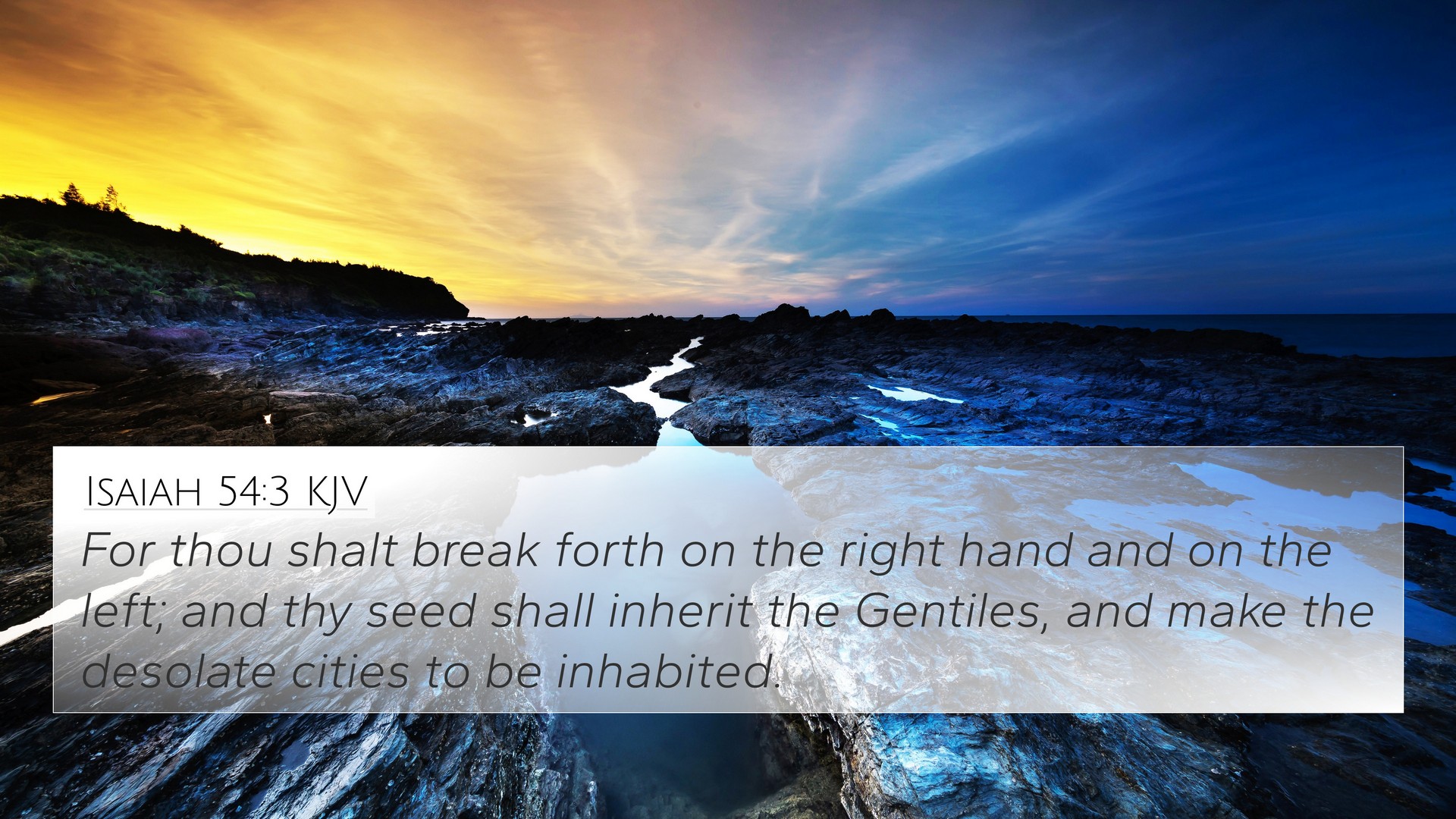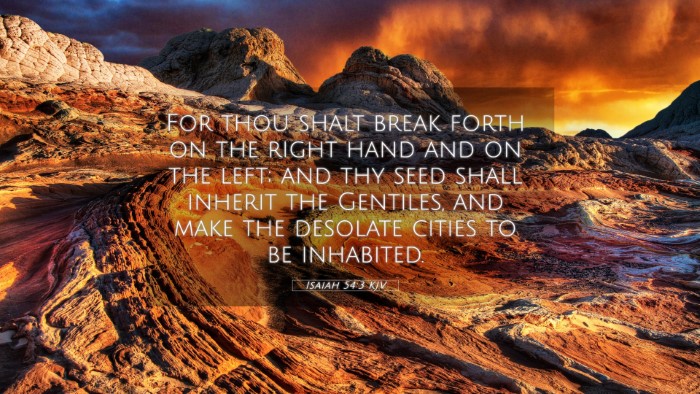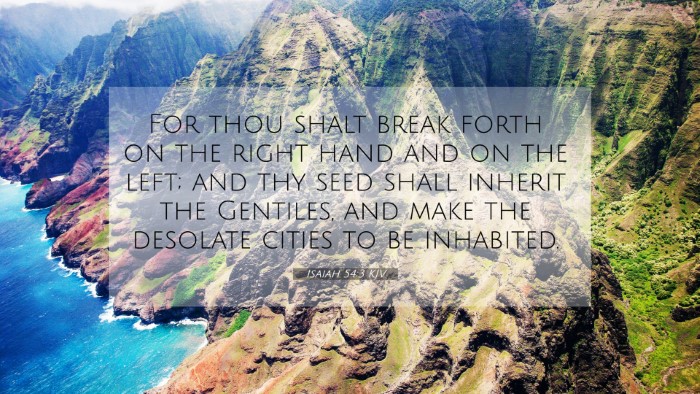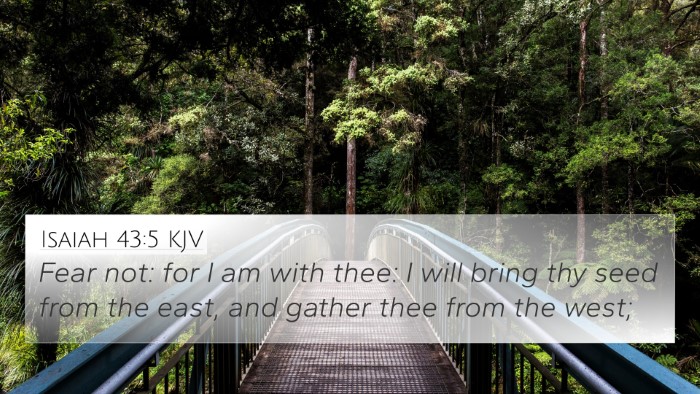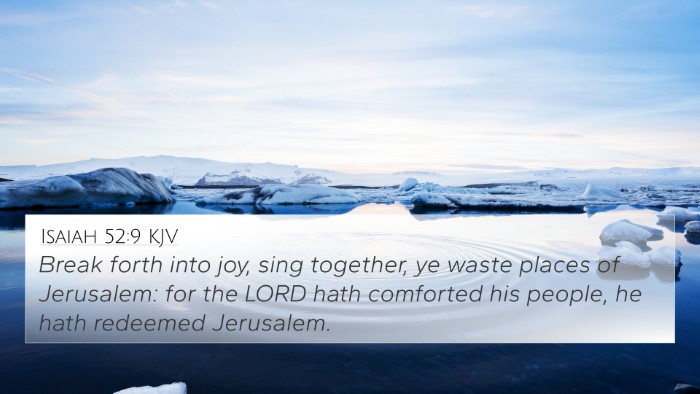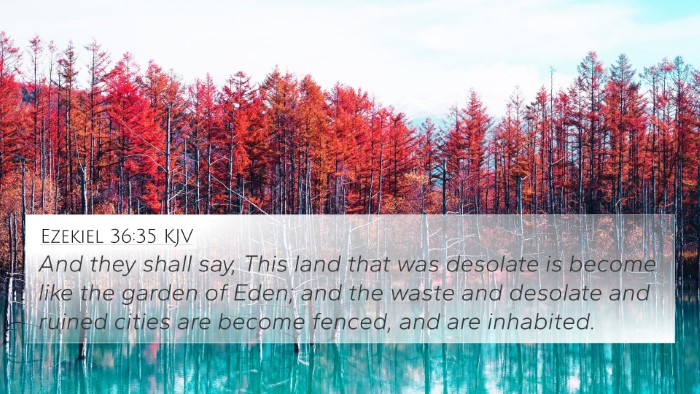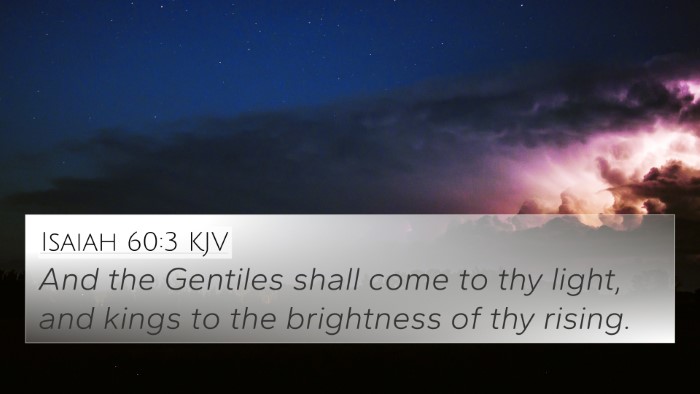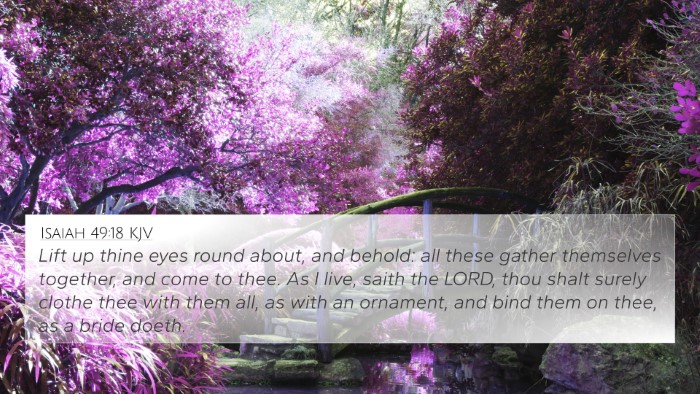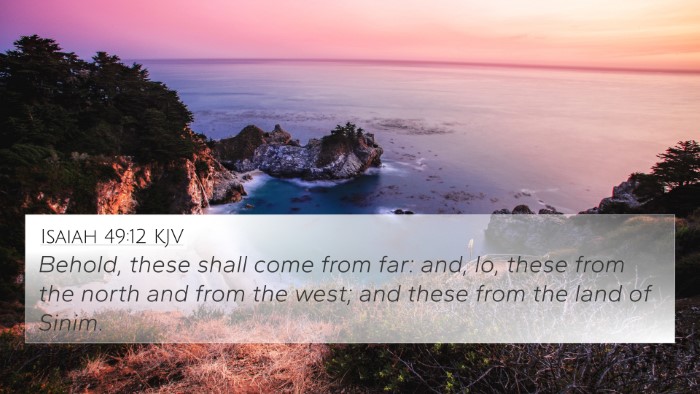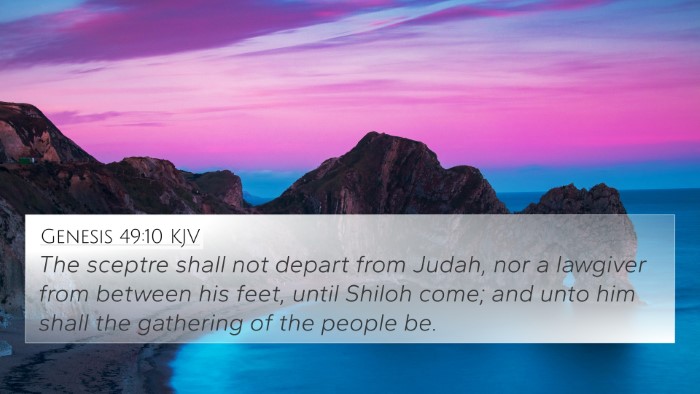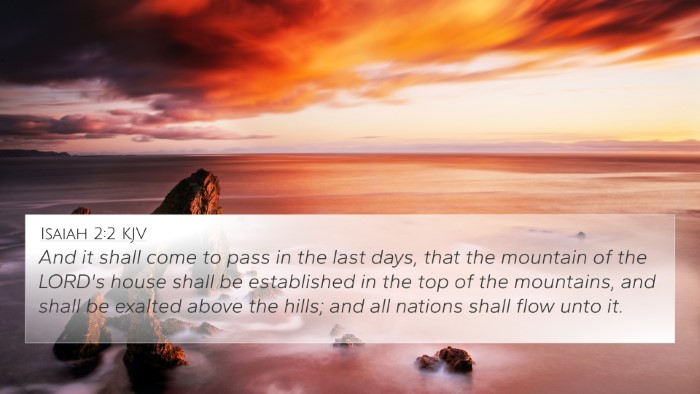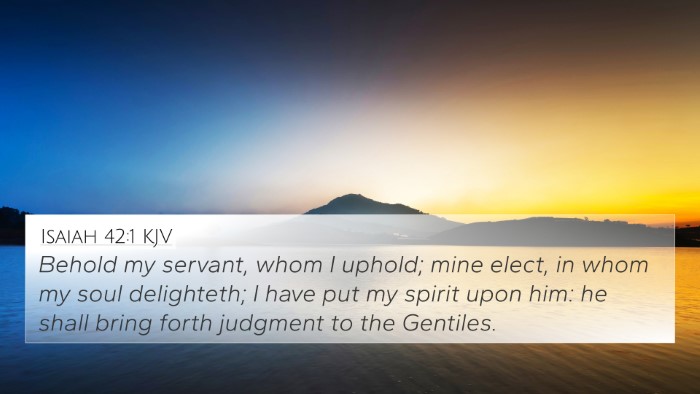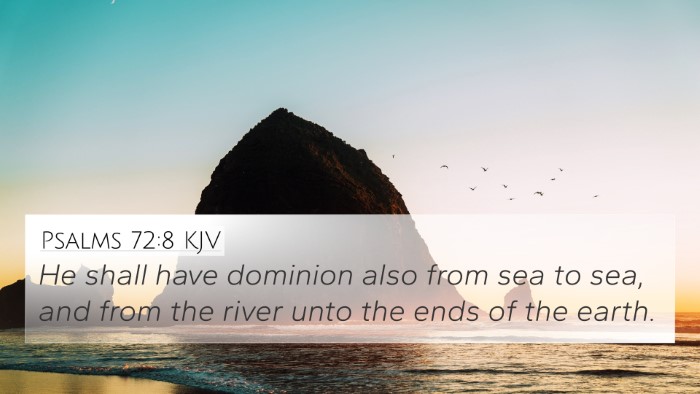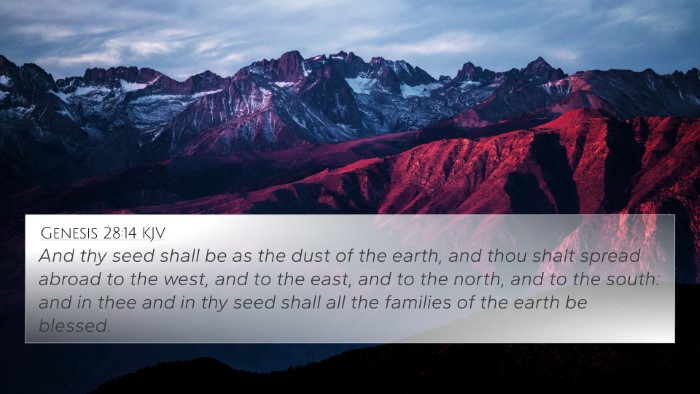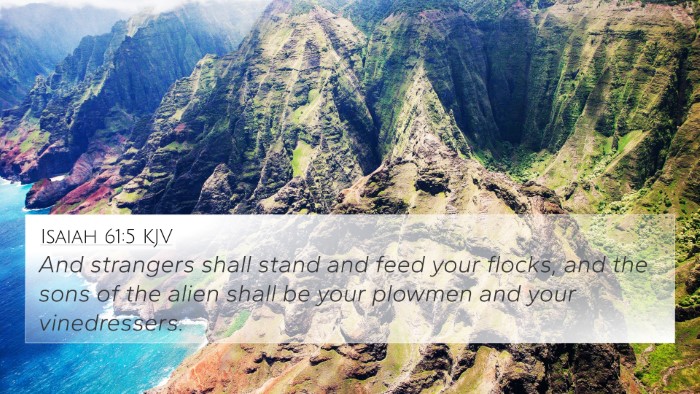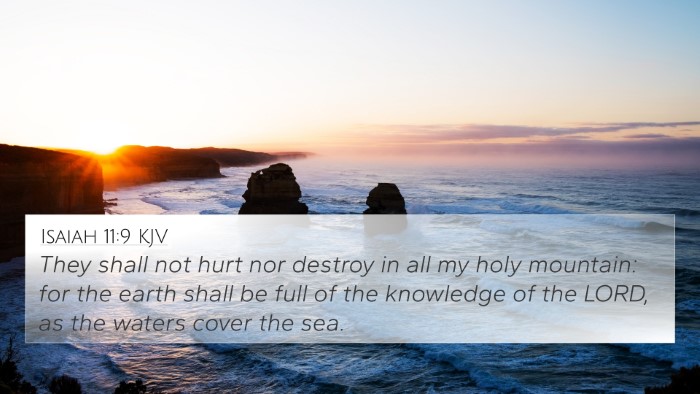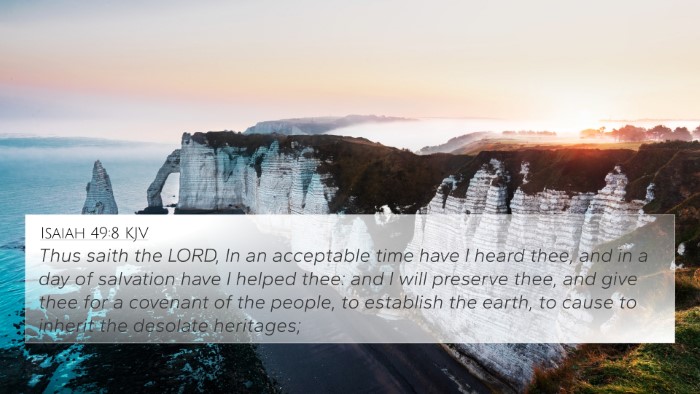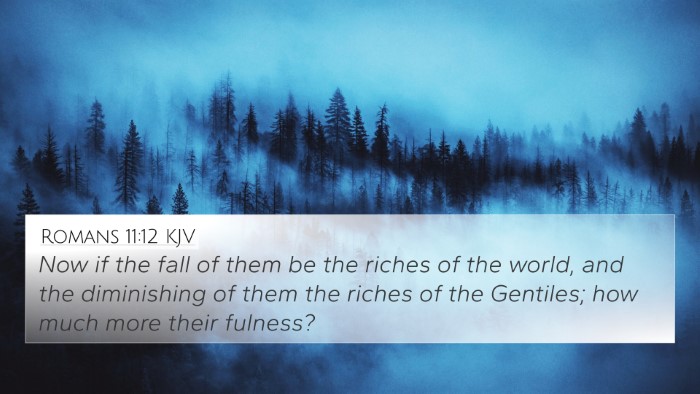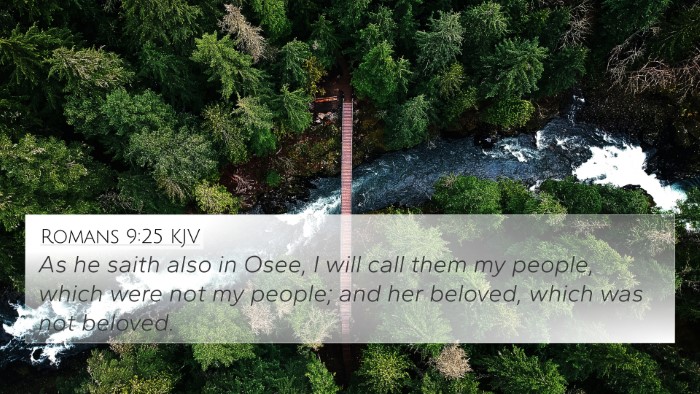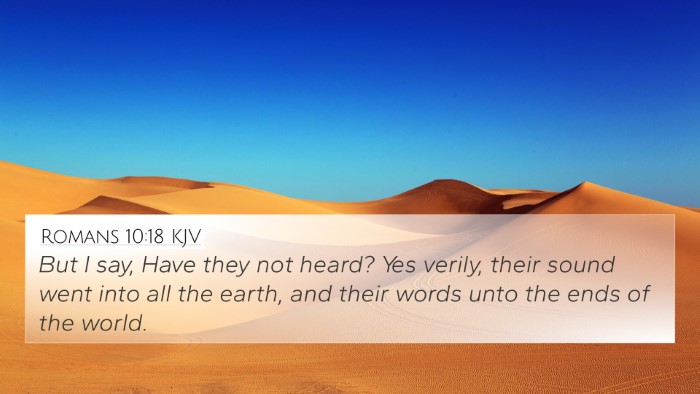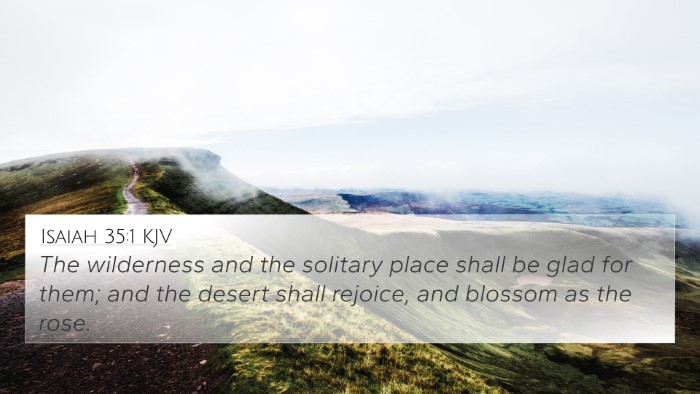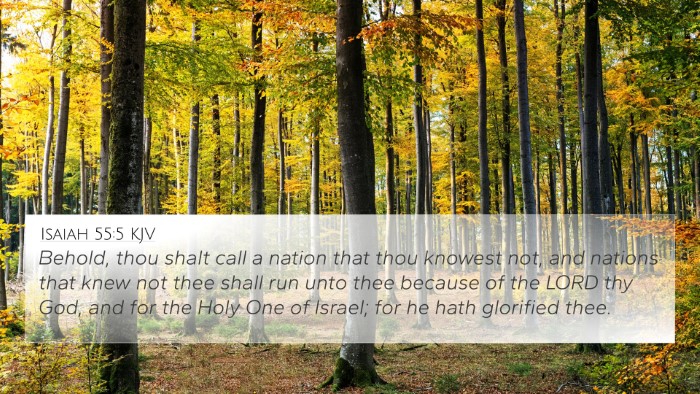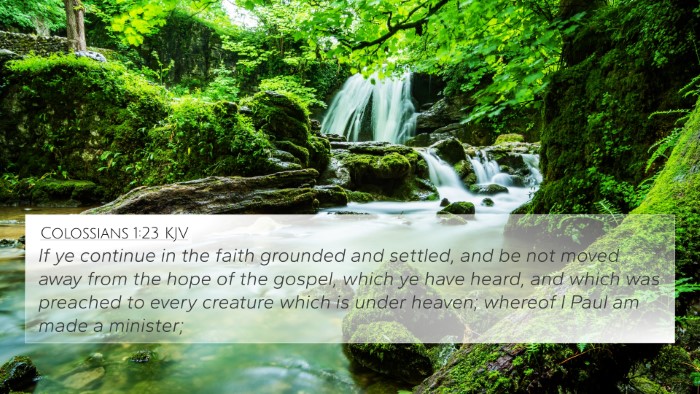Understanding Isaiah 54:3
Isaiah 54:3 states: "For thou shalt break forth on the right hand and on the left; and thy seed shall inherit the Gentiles, and make the desolate cities to be inhabited." This verse conveys a powerful promise of expansion and restoration following a period of desolation.
Contextual Background
The Book of Isaiah presents a profound message directed primarily towards Israel, emphasizing both judgment and hope. In Isaiah 54, the context highlights God's promises of comfort and restoration after judgment, particularly for the nation of Israel.
Key Themes
- Divine Promise: The emphasis on expanding beyond one's current boundaries.
- Inheriting the Gentiles: The inclusion of the nations into God’s plan for Israel.
- Restoration of Desolation: Transforming forsaken places into thriving communities.
Commentary Insights
Matthew Henry notes that the "breaking forth" indicates a vigorous divine action that God will take on behalf of His people, promising not only personal but communal growth. This promise insists on God's willingness to bless His people abundantly, even beyond their expectations.
Albert Barnes emphasizes the prophetic nature of the passage, indicating that the "seed" refers to the descendants of Israel who will not only possess the land promised to them but also extend their influence among the Gentiles. The imagery used here suggests a reversal from previous desolation symbolizing the hope deposited in the children of Israel.
Adam Clarke highlights that this verse speaks concerning the church of Christ, portraying the growth and spread of the Gospel through both the Jewish and Gentile believers who will inherit God's promises and blessings. Additionally, Clarke underscores the notion that God’s intention encompasses a community-wide inheritance rather than just individual blessing.
Cross-References
This verse stands in connection with numerous other scriptures, which highlight its themes of expansion, restoration, and inheritance. Below are key cross-references:
- Genesis 12:3: God's promise to Abraham about blessing all nations through his descendants.
- Isaiah 49:19-20: The promise of restoration and growth for desolate places.
- Acts 2:39: The promise of salvation extends to all whom the Lord calls.
- Romans 4:13: The promise to Abraham and his descendants extends beyond the law to the world.
- Galatians 3:29: Gentiles become heirs according to the promise through Christ.
- Revelation 21:24: Nations will walk in the light of the New Jerusalem, fulfilling Isaiah's vision.
- Jeremiah 31:10: God gathering His people from the nations, a theme echoed in Isaiah.
Thematic Connections
Isaiah 54:3 not only emphasizes the hope for Israel but also ties into the broader narrative of Scripture that speaks of God’s plan for redemption which encompasses all nations, as seen through various thematic connections such as:
- Redemption: The theme of salvific promise as outlined in scriptures.
- Restoration: Biblical prophecies centered around the restoration of God's people and their land.
- Growth of the Church: Emphasizing the expansion of the church in the New Testament context.
Conclusion
In summary, Isaiah 54:3 offers profound insight into God's redemptive purposes. It signals a hopeful future marked by divine expansion and restoration, not just for Israel, but for all nations included in God's eternal promise. The interconnectedness of this verse with the entirety of Scripture allows us to see the trajectory of God's plan, marked by cross-referencing biblical texts, and invites readers to explore the ever-relevant themes of hope, inheritance, and restoration.
Further Exploration
For those interested in further development of these insights, utilizing a Bible concordance and Bible cross-reference guide can provide deeper understanding. Engaging in cross-referencing Bible study methods will illuminate links between passages, enhancing comprehension of the scripture and its applications in both historical and modern contexts.
